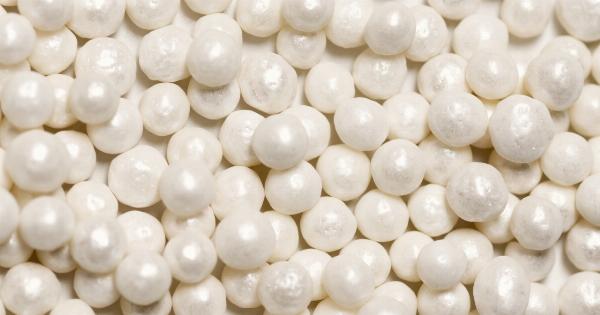For decades, we have been told that milk is essential for strong bones and overall good health. The milk industry has spent millions on advertising campaigns to convince us that milk is the key to preventing osteoporosis and maintaining bone health.
However, recent research and studies have shown otherwise. In this article, we will debunk the myths about milk and strong bones.
Myth #1: Milk Builds Strong Bones
It is a commonly held belief that consuming milk and dairy products can help build and maintain strong bones. However, the truth is that while milk is a source of calcium, it is not the only source, and it is not even the best source.
There are many other plant-based sources of calcium that are better for bone health, including leafy greens, nuts, and seeds. In fact, some studies have shown that populations which consume little to no dairy have lower rates of osteoporosis than those who consume high amounts of milk and dairy.
Myth #2: Milk Prevents Osteoporosis
Osteoporosis is a disease that causes bones to become brittle and fragile, making them more prone to fractures. Many people believe that drinking milk can help prevent osteoporosis, but the evidence does not support this claim.
While calcium is important for bone health, the key to preventing osteoporosis is not just about calcium intake, but also about maintaining a healthy diet and lifestyle, including regular exercise.
Myth #3: Milk is the Only Source of Calcium
Milk is not the only source of calcium. As mentioned earlier, there are many plant-based sources of calcium that are better for bone health than dairy products.
Some of the best sources of calcium include leafy greens like kale and collard greens, nuts like almonds and walnuts, and seeds like chia and sesame seeds. These sources of calcium not only provide the body with the calcium it needs, but they also offer a host of other vitamins and minerals that are essential for overall health.
Myth #4: Milk is Good for Everyone
Milk is not necessarily good for everyone. Many people are lactose intolerant, meaning they cannot digest lactose, a sugar found in milk and other dairy products. This can cause digestive problems such as bloating, gas, and diarrhea.
In addition, some people have milk allergies, which can cause more serious symptoms like hives and anaphylaxis. While some people can tolerate dairy with no problems, it is not a necessary or essential part of a healthy diet.
Myth #5: Milk is the Only Way to Get Vitamin D
While milk is fortified with vitamin D, it is not the only source of this important nutrient.
The body can produce vitamin D when the skin is exposed to sunlight, and there are also many foods that are high in vitamin D, including fatty fish, mushrooms, and fortified cereals. In addition, taking a vitamin D supplement can ensure that the body is getting enough of this important nutrient.
Myth #6: Milk is Essential for Children
While milk may be a good source of calcium and other nutrients for growing children, it is not the only source, and it is not essential. In fact, some children are lactose intolerant or have milk allergies and cannot consume dairy products.
There are many other sources of calcium and other nutrients that are important for children’s growth and development, including fruits, vegetables, whole grains, and lean proteins.
Myth #7: Drinking More Milk is Always Better
Drinking more milk does not necessarily mean better bone health. In fact, consuming too much milk and dairy products can actually lead to health problems, including obesity, heart disease, and certain types of cancer.
The key to good bone health is not just about calcium intake, but also about maintaining a healthy and balanced diet and lifestyle.
Myth #8: Milk is Only for Women
While women are more at risk for osteoporosis than men, due to hormonal changes that occur after menopause, men can also benefit from consuming calcium-rich foods, including milk.
In fact, men who consume high amounts of dairy products may be at a higher risk for prostate cancer. Men and women alike can benefit from a balanced diet that includes a variety of plant-based sources of calcium, along with regular exercise and a healthy lifestyle.
Myth #9: The Dairy Industry Cares About Your Health
The dairy industry spends millions on advertising campaigns to convince us that milk is essential for good health, but their primary concern is not our health.
The dairy industry is a profit-driven industry, and their main goal is to sell more milk and dairy products. While dairy products can be part of a healthy diet, it is important to recognize that the information provided by the dairy industry is not always unbiased and may be designed to increase sales, rather than promote good health.
Myth #10: You Need to Consume Milk Every Day to Be Healthy
Milk is not essential for a healthy diet, and you do not need to consume it every day to be healthy. While it is true that calcium is important for bone health, there are many other plant-based sources of calcium that are better for overall health.
Consuming a variety of fruits, vegetables, whole grains, and lean proteins can provide the body with the nutrients it needs to maintain good health.































